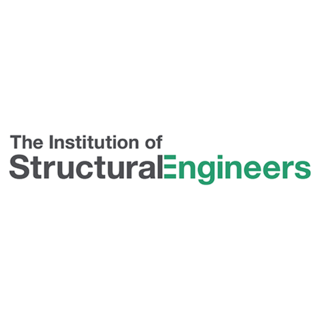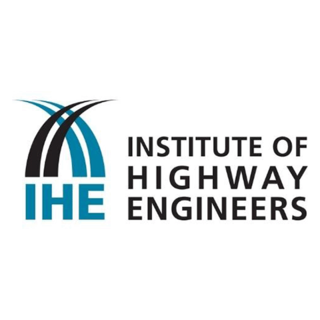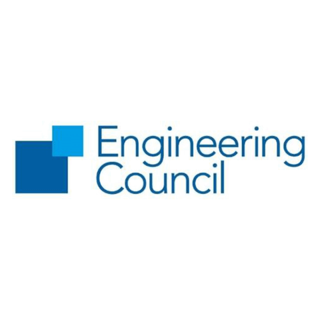MSc Advanced Structural Engineering
Skip to section
Key information
- Mode of delivery
- Online
- Start date
- September, January
- Duration
- Varies
- Qualification
- MSc
Contact
Contact our enquiries team
Contact usOverview
Our Advanced Structural Engineering course is aimed at graduates and practising engineers. It's designed to help improve your knowledge of structural and foundation engineering. The degree has been developed together with a wide range of employers in the sector. So there's a strong relationship between the course and the engineering industry. The course also builds directly on staff research activities, which include experimental, numerical and theoretical work. You'll have access to excellent practical and advanced computer and networking facilities too.
Degree duration
Online Learning: The fastest this MSc can be completed is in 2½ years. The maximum completion timeframe is 8 years. On average, most students complete a MSc in 3-4 years.
Delivery of online degrees
Our up-to-date and progressive course materials are made available online through the Virtual Learning Environment (VLE). The VLE links you with our expert academics and course materials through videos, webinars, articles, journals, assessments and discussion boards. Tutors will provide you, by phone, Skype or email, with academic support similar to that received by our on-campus students.
To find out more about time requirements, support and exams, view our How online learning works pages to find out more.
Course content
This online MSc programme in Advanced Structural Engineering is designed to help graduates and practising engineers improve their skills and knowledge. See more.
Year 1
The curriculum of Structural and Foundation Engineering covers the specialist technical and computational skills necessary for today's construction industry and therefore offers excellent preparation for employment across an industry that includes consulting and contracting engineers, public authorities and local government. In addition, the course also provides a suitable springboard for graduates seeking a career in a research lead environment.
Both MSc and Diploma students undertake the 3 mandatory and 5 optional taught courses from the list below. MSc students also complete a Masters dissertation.
Degree structure
Semester 1
Core
- Finite Element Method Linear Analysis
Optional
- Advanced Design Of Reinforced Concrete Structures
- Sustainability for Construction Professionals
- Climate Change, Sustainability and Adaptation
- Structural Materials
- Structural Dynamics and Earthquake Engineering
Semester 2
Core
- Plastic Analysis of Structures
- Advanced Design Of Steel And Steel-Concrete Composite Structures
Optional
- Design of Low Carbon Buildings
- Energy Systems and Buildings
- Finite Element Method: Nonlinear Analysis
- Foundation Engineering
- Safety, Risk and Reliability
Detailed degree guide
Understanding, Knowledge and Cognitive Skills
Students should demonstrate an ability to:
- Acquire advanced knowledge of modern civil engineering practice including project management and construction management skills
- Acquire expert knowledge in their chosen field of specialisation within Civil Engineering
- Develop the applied mathematical skills required by professional engineers
- Gain a comprehensive understanding and knowledge of the concepts, principles and theories of specialist technical issues to meet to their professional aspirations
- Transfer problem-solving skills to a variety of contexts and multidisciplinary scenarios
- Apply engineering technical and management skills to solve practical Civil Engineering and Construction Management problems
Scholarship, Enquiry and Research (Research Informed Learning)
Students should be able to:
- Develop their abilities to research unfamiliar technical issues
- Demonstrate an understanding of technical advances in the field of Civil and Structural Engineering
- Undertake personal management of complex project-based activities
- Transfer technical knowledge to application in new and diverse situations and in the analysis of novel problems
- Provide professional leadership when required by technical responsibility
- Apply numerical and analytical problem-solving skills and engineering knowledge in a variety of Civil and Structural Engineering related contexts

"Our MSc in Advanced Structural Engineering will provide you with advanced skills in code-based design, sophisticated analysis, and assessment of modern structures. The courses offered provide research-based learning and embed modern advances in the field of structural engineering, including sustainable construction methods and resilience under extreme hazards."
MSc Advanced Structural Engineering
Fees and funding
Tuition fees
| Status | Per course [footnote 1] | Dissertation/Project [footnote 1] |
|---|---|---|
| UK / EU / Overseas | GBP1525 | GBP1965 |
- The tuition fees listed are for courses starting between September 2024 and August 2025. Fees normally increase annually. Find out more about our tuition fees.
Additional fee information
Financial support
Tuition fee loans are available to Scottish distance learning students on some taught postgraduate courses. Find out more from the Students Awards Agency Scotland (SAAS)
Scholarships and bursaries
We aim to encourage well-qualified, ambitious students to study with us and we offer a wide variety of scholarships and bursaries to achieve this. Each year, hundreds of students enhance their educational experience through a variety of Heriot-Watt and externally funded scholarships, including opportunities funded by the University's generous alumni community, based all over the world.
View our full range of postgraduate scholarships.
Entry requirements
For MSc level entry applicants must have:
- Minimum of 2:2 honours degree or equivalent academic qualification in cognate and semi-cognate subject area.
- Corporate (or chartered) membership of relevant professional institutions will also be considered.
For PG Diploma level entry applicants must have:
- Third class honours degree in a cognate or semi-cognate subject area PLUS 2 years of relevant experience at an appropriate level completed post qualification.
- Cognate or semi-cognate ordinary degree PLUS 3-4 years of relevant experience at an appropriate level following graduation.
- Candidates who do not meet the above entry requirements or have no formal academic qualifications will be considered individually based on their CV and interview. Admission via this route will be at the discretion of the Director of Admissions and the number of successful applicants will be restricted.
There is no entry at PG Certificate level except through exceptional agreement with approved learning partners.
Non-graduating study at masters level:
- Entry is based on CV or on formal academic qualifications or graduate (or incorporated) membership of a relevant professional institution.
Recognition of Prior Learning
We are committed to providing study opportunities to applicants who have a wide range of prior experiences through Recognition of Prior Learning (RPL). For more information on RPL, please contact the Online Admissions Team (egis-idl-apps@hw.ac.uk) ahead of application. We can only consider requests for RPL at the time of application to a course of study.
English language requirements
If English is not the applicant's first language a minimum of IELTS 6.5 or equivalent is required with all elements passed at 6.0 or above. Please refer to English language requirements for further details.
Some applicants may be asked for alternative evidence in line with UKVI recognised English speaking countries. Applicants who have previously successfully completed courses delivered in the medium of English language may be considered and will be required to provide documentary evidence of this. Examples would be secondary school education or undergraduate degree. A minimum of at least one year of full time study (or equivalent) in the medium of English language will be required.
All evidence of English language needs to be dated within two years of the commencement of study.
We also offer a range of English language courses to help you meet the English language requirement prior to starting your master's programme:
- 20 weeks English (for IELTS of 5.0 with no skill lower than 4.5)
- 14 weeks English (for IELTS of 5.0 with minimum of 5.0 in writing and no skill lower than 4.5)
- 10 weeks English (for IELTS of 5.5 with no skill lower than 5.0)
- 6 weeks English (for IELTS 5.5 with no skill lower than 5.5)
Why Heriot-Watt?
Flexibility and affordability
Study at a time and pace that suits you, and even while you work. HW Online offers pay-as-you-study courses and fees inclusive of exams and study materials, meaning you can focus on success, not extra costs.
Your career
Employers around the world actively seek out our graduates because they are work-ready. All our degrees are career-focused and relevant to the needs of industry. Around 95% of our students are in employment or further study within six months of graduating.
Online events
We host online events throughout the year, giving you the opportunity to speak to our academic teaching staff, meet students, find out what it is like to study using our Virtual Learning Environment (VLE) and discover how to enrol.
Lifelong connections
Upon completing your studies you will automatically join the UK's oldest alumni association The Watt Club, with 147k members worldwide.
Study options Edinburgh - Advanced Structural Engineering
Our MSc in Advanced Structural Engineering is also available to study at our Edinburgh campus.
We are accredited by the following organisations
At Heriot-Watt University we develop degrees that are relevant for the world of work. We work with Professional bodies and Institutes to gain appropriate Accreditations and Professional Memberships for your industry. Find out below how this degree aligns to industry.





_rdax_320x320_100s.jpg)



